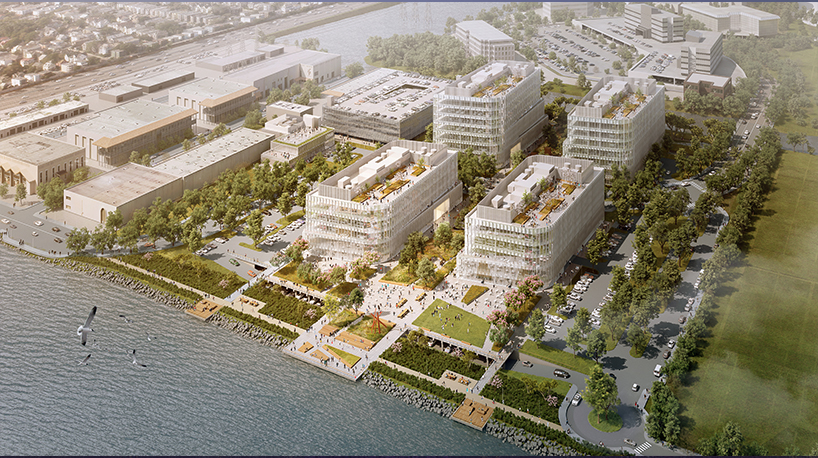Last week Burlingame-based subsidiary of Chinese conglomerate Genzon Property Group, Kylli Inc., debuted an ambitious development proposal featuring what would be the tallest building in Silicon Valley on the 49-acre parcel in North Santa Clara that was assembled by Yahoo! in 2006.
This investment marks a new wave of Chinese activity in U.S. real estate, according to Matt Sheehan, fellow at the Paulson Institute public policy think tank and creator of the Chinafornia Newsletter (www.getrevue.co/profile/matt-sheehan).
Following the imposition of controls on the outflow of Chinese capital last year many overseas development projects had to be abandoned. But things may be turning around, Sheehan said. “Genzon appears to be leaning in and doubling down on major projects.”
Privately-held Genzon was founded in 2003 and is based in Shenzhen, China. The conglomerate has businesses in real estate, pharmaceutical manufacturing, biodegradable materials, cold storage logistics, sheet metal, venture capital investment, hotels, hospitality services and financial management.
The company is one of the largest developers in south China, according to a 2015 report in the Silicon Valley Business Journal, and owns Shenzhen’s Mission Hills Golf Club, called the world’s largest golf club by Guinness in 2004.
Unlike the high-flying previous owner of the Yahoo! parcel, LeEco, Genzon has a proven track record of U.S. projects.
Kylli opened up shop in San Francisco in 2013 specifically to support the expansion of Genzon’s business into Northern California, according to its promotional material, and the company is clearly interested in marquee projects.
“A lot of Chinese firms like to build high profile projects in places like New York City and Los Angeles,” explained Sheehan. “Chinese firms tend to build bigger and think bigger. This combination of mixed use [proposed in Santa Clara] is pretty common in China. If you have the land, the thinking is, ‘make something significant out of it.'”
In 2014 Kylli bought San Francisco’s historic 1922 former Standard Oil headquarters at 225 Bush St., an historic high-rise office tower in San Francisco’s Financial District.
In 2017 the company acquired the San José Hilton, and broke ground on a $300 million Burlingame waterfront five-to-seven story office project where it’s planning to build about 770,000 square feet of office, R&D and retail space.
One reason Chinese companies embark on real estate projects in the U.S., says Sheehan, are as insurance policies to protect assets. “Chinese real estate has a high [value] ceiling, but nobody has any idea where the floor is,” said Sheehan. “If you’re a company with hundreds of billions in assets it makes sense to park some of that in the U.S.”
While the U.S. market may not experience the spectacular increases of the Chinese market, investors can be confident that the value of their investments won’t drop suddenly and precipitously.
“There is an abiding fear in China that currency or property market is going to go bust,” said Sheehan. Following the 2015-2016 Chinese stock market crash there were “massive” outflows of investor cash from China, which ultimately led to the Chinese government’s crackdown on capital leaving the country, said Sheehan. That led to companies pulling back from investments and abandoning projects.
“As a Santa Clara City Council Member, I would be interested to find out if Genzon has the money in the country for the project,” he said. “It’s incumbent on the City Council to make sure Genzon can follow through.”
Kylli didn’t respond to the Weekly’s requests for an interview.







